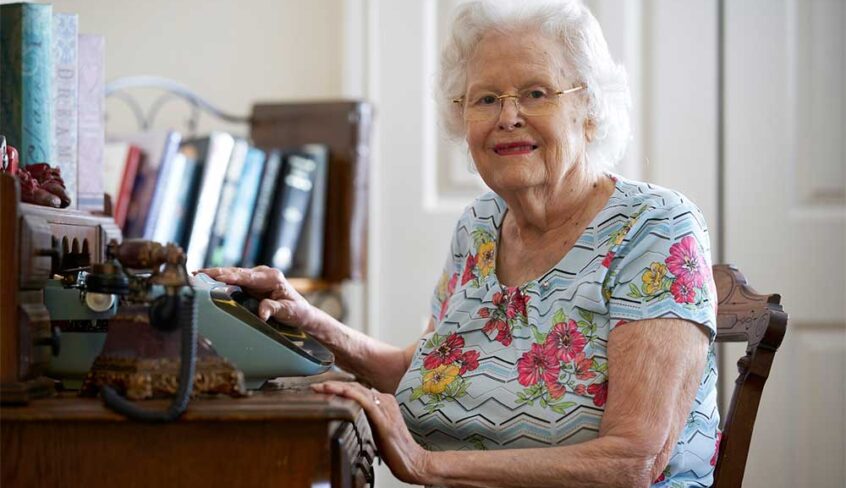When a loved one is diagnosed with dementia stemming from Alzheimer’s, understanding your options can be an emotional and difficult process. Though there is no cure, there are treatments available that can help reduce symptoms and help your loved one maintain their quality of life. While most experts agree that anyone with any form of dementia should see a specialist, there are several types to choose from. That can make it difficult to know what course of action to take.
One effective option is to visit neurologists specializing in dementia near you who can offer guidance. They can conduct a thorough neurological exam and recommend subsequent Alzheimer’s treatment. Combining a neurologist’s evaluation with the findings of other types of Alzheimer’s doctors near you—psychiatrists, psychologists and geriatricians—can help make the path to finding the best treatment for your loved one even clearer.
November is National Alzheimer’s Month. In recognition of the importance of the diagnosis and treatment of this disease, here’s what you need to know about the benefits of seeking a neurologist for your loved one with dementia.
What is the best doctor for Dementia? Do seniors with Alzheimer’s need to see a neurologist?
The short answer to this question is “maybe”. Here are three important things to consider to help you make the best decision for your loved one.
#1: Your best choice may not be your family doctor
Although a preliminary diagnosis may begin with your primary care doctor, they’ll most likely refer you to a specialist. Some people express a preference to continue seeing their family doctor because it’s someone they know and trust. Others may feel disheartened by their diagnosis and question the use of seeing a specialist.
That’s an understandable concern, but misinformed. New research is published every month about findings in Alzheimer’s treatment. Although scientists haven’t yet found a cure, they have uncovered much that is helpful for people who have been diagnosed.
Dementia is a rapidly developing area of study, and it’s likely that the family doctor won’t be as up to date with the latest information. This may be especially true in the case of early onset Alzheimer’s, where symptoms and treatment are less well-known among most regular doctors.
Seeing a specialist will ensure your loved one benefits from the most recent therapies and medications.
#2: Not all dementia specialists are trained in neurology
A specialist may know more than the family doctor about the latest research in Alzheimer’s, but there are still several types to choose from. The family doctor may refer you to any of the following, based on your loved one’s unique set of circumstances:
- Psychologist
- Geriatrician
- Geriatric psychiatrist
- General neurologist
- Behavioral neurologist
Note that not all the above are trained in neurology.
Psychologists and geriatricians are not required to earn certification from the American Board of Psychiatry and Neurology. Psychiatrists and neurologists must earn this certification by demonstrating a thorough knowledge of neurology, among other topics.
That’s why any of these professionals may offer help but only the last two—the neurologists—will have a high level of expertise about the inner workings of the brain.
Neurologists are trained to detect subtleties of the brain that cause memory problems. Only they can conduct a thorough neurological exam and recommend subsequent treatment for brain disorders such as Alzheimer’s.
#3: Much of the promising research is in neurology
Since this disease is a brain disorder, it stands to reason that some of the most promising research findings come from the field of neurology. For example, in a recent study, neuroscientists found that a certain type of light therapy reversed the advance of Alzheimer’s in mice.
Only a neurologist is likely to know about research projects like this and how they might impact your loved one’s health. If you have questions about current research, a neurologist may be the best person to answer them.
Staying Informed with Five Star Senior Living
Here at Five Star Senior Living, we’re constantly working to stay current with scientific developments in Alzheimer’s diagnosis and treatment. Our memory care program is designed around sound principles of science, much of which involves the work of neurologists.
One example is our Memory Care program, a dementia program offered exclusively at Five Star Senior Living communities. This program is designed to provide a safe, nurturing environment that offers seniors living with Alzheimer’s disease a place to flourish.
If you’d like to know more about our Memory Care program contact us. Or to see one of our memory care neighborhoods, find a community near you and schedule a tour.
Contact Us Today
"*" indicates required fields

